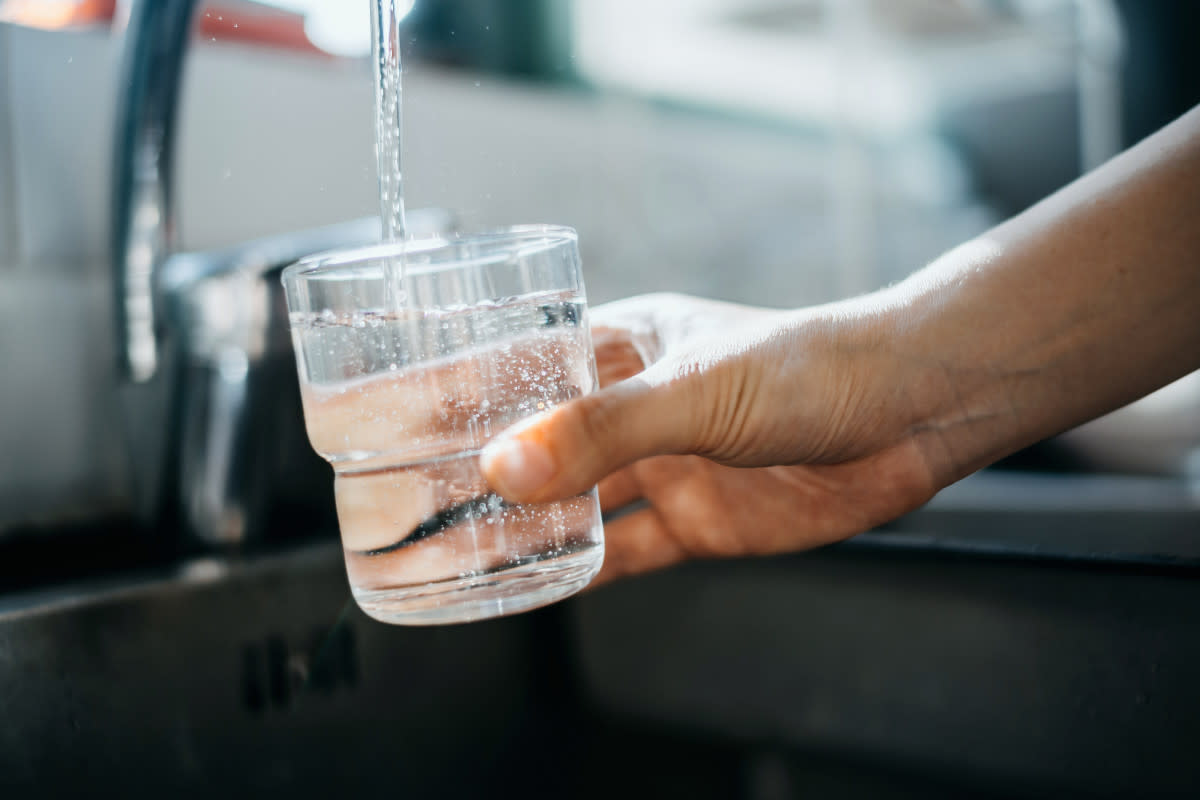There's a Simple Way to Remove Microplastics From Drinking Water, According to a New Study

Microplastics are showing up in seemingly every corner of our everyday lives, from breast milk and internal organs to the water we drink. Luckily, if you're looking to reduce the number of microplastics that you drink, you might be able to do so easily at home.
A new study published in the Environmental Science & Technology Letters journal claims that boiling and filtering water can remove up to 90 percent of microplastics from water. According to their findings, tiny plastic particles can be found in 129 of 159 tap water samples from 14 different countries.
To test the theory, the researchers created simulated tap water, complete with all of the minerals, chemicals, and microplastics that are often present. They had a simple goal of determining whether something as quick as boiling water would be enough to remove microplastics from drinking water.
Hard water samples with large concentrations of minerals like calcium and magnesium were especially shocking to the scientists. Calcium carbonate, which is commonly found in tap water, will solidify if it gets hot enough. The study found that the calcium then covers the plastic particles, allowing them to easily be removed with a simple filter like a coffee filter.
Related: Alarming Microplastic Levels in Remote Oceans Worry Scientists
It's certainly a promising finding, especially for those who are worried about microplastics and other contaminants in their drinking water. But the researchers noted that more work needs to be done to fully understand the effects of microplastics on our health, as well as the benefits of boiling and filtering drinking water as a means of getting rid of them.
"This study is aimed to stimulate more studies," the scientists wrote. Still, they pointed out that boiling water is easy for most people to do and can have other health benefits, such as killing harmful microbes, parasites, and viruses.
If you can't be bothered to boil every glass of water before you drink it, consider investing in a filter that removes microplastics.

